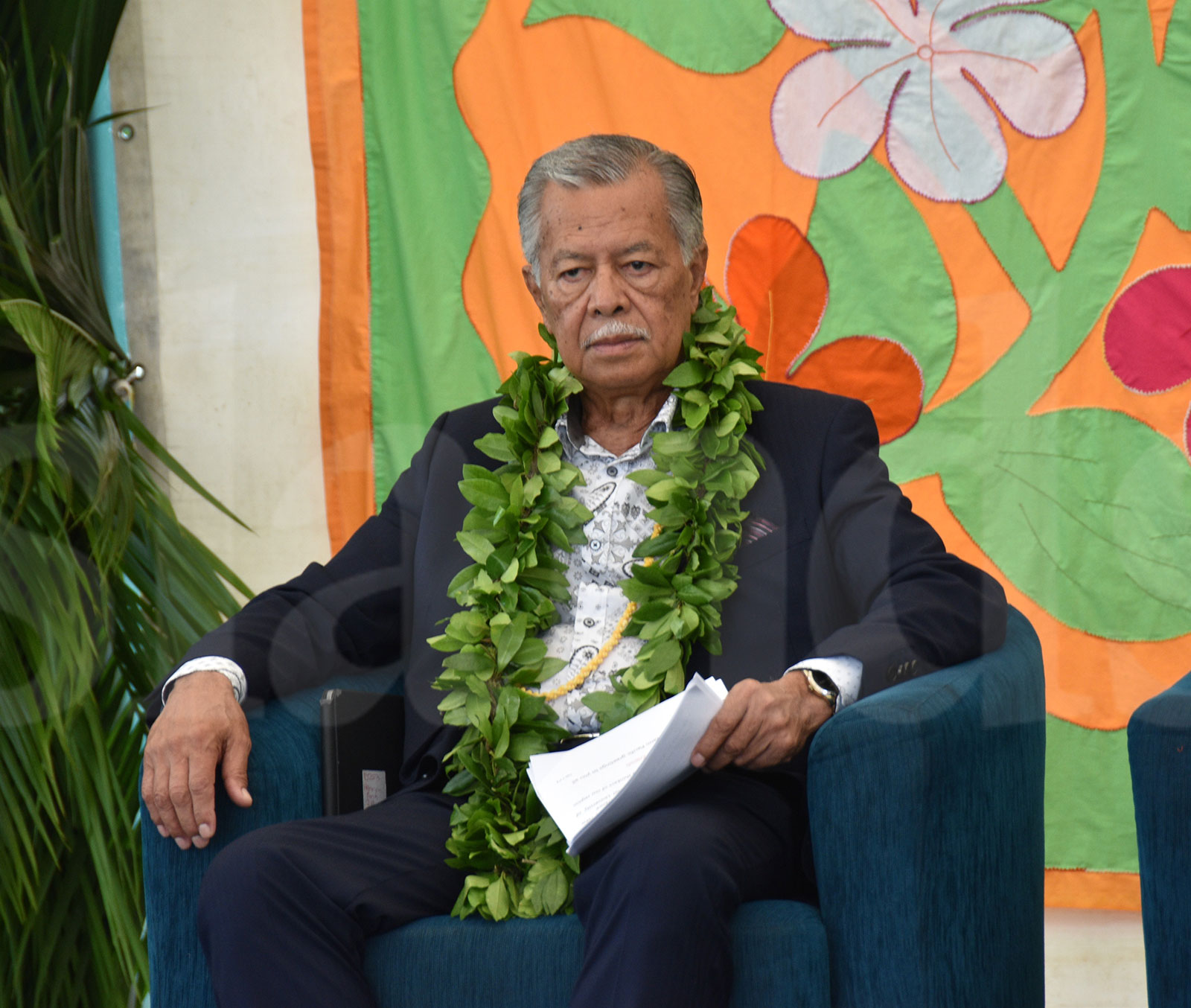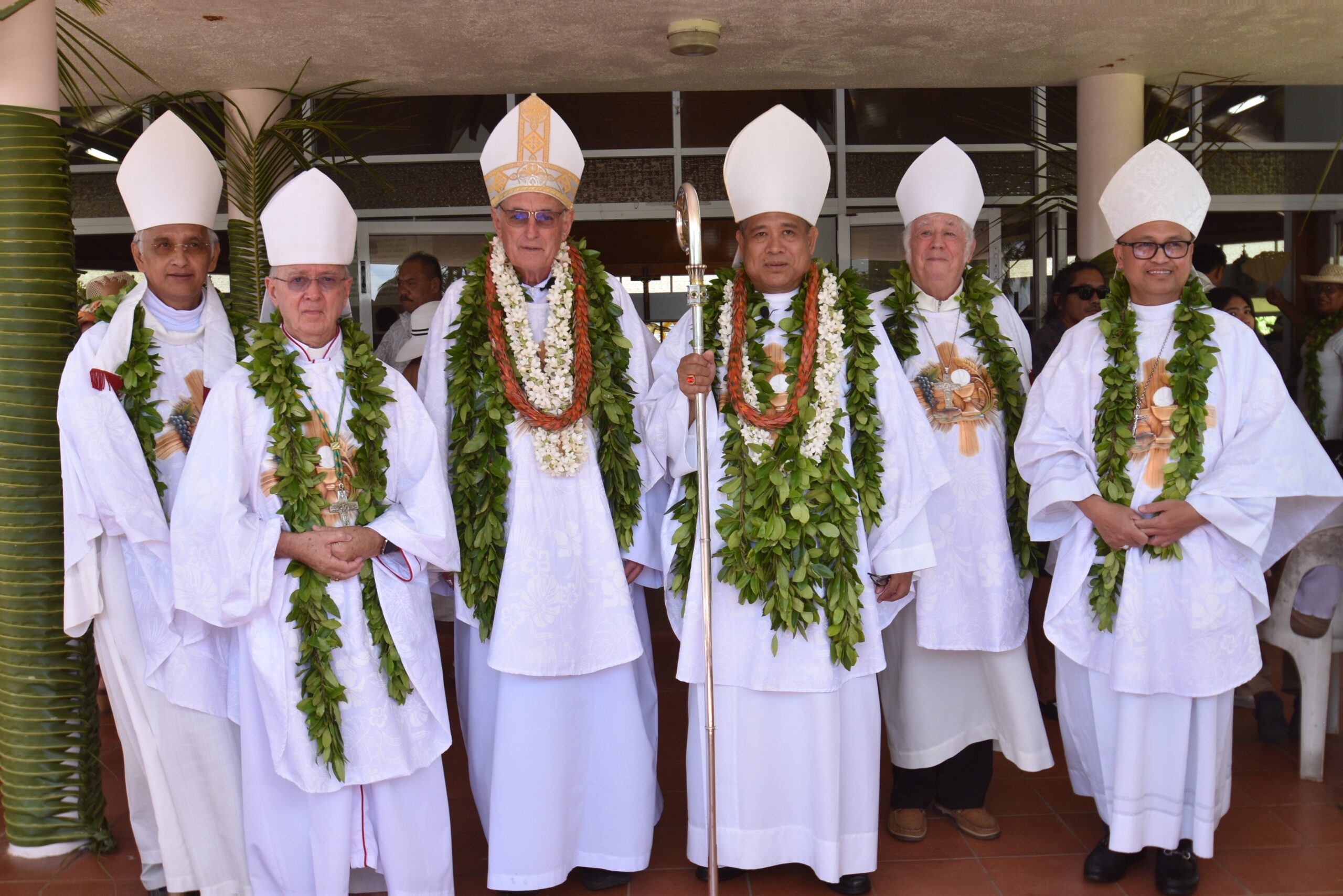Puna: Fukishima talks tabled for Cooks Pacific Islands Forum Leaders Meeting
Thursday 24 August 2023 | Written by Al Williams | Published in 52nd Pacific Islands Forum 2023, Environment, National, Pacific Islands, Regional

Secretary General of the Pacific Islands Forum Henry Puna at the Pacific Island Universities Research Network (PIURN) conference in Rarotonga. MELINA ETCHES / 23070408
It appears the Pacific is still divided on the Fukishima wastewater issue and likely to be a hot topic of conversation at the upcoming Pacific Islands Forum on Rarotonga.
While Prime Minister Mark Brown has given a clear message on his support for the International Atomic Energy Agency (IAEA) report on Japan’s proposed plans to release ‘treated’ nuclear wastewater into the Pacific, Pacific Islands Forum Secretary General Henry Puna says it remains clear however, that there continues to be divergent views and responses in the international community and within the Forum Membership on the issue.
“I recognise the sovereignty and prerogative of Forum Members to determine their own national positions,” Puna said in a statement yesterday.
“These developments continue to fuel our unwavering commitment to addressing this unprecedented issue.
“In this respect, the Forum Secretariat will continue to strive to provide the latest information and updates to the upcoming Forum Foreign Ministers Meeting on September 15 for further discussion and consideration, and from there to the PIF Leaders Meeting in the Cook Islands on November 10.”
As Japan started releasing treated radioactive water from the devastated Fukushima nuclear power plant, China was prompted to announce a ban on all aquatic products from Japan.
The seawater transfer pumps began the release into the Pacific Ocean shortly after 1pm Thursday local time (04:00 GMT) with plant operator Tokyo Electric Power Company (Tepco) announcing earlier that weather and sea conditions were suitable.
“The Forum Secretariat will continue to facilitate ongoing dialogue with the Government of Japan and the IAEA to ensure that Forum Members are privy to the latest information and updates,” Puna said.
Puna said he had placed the highest priority on the Fukushima nuclear wastewater issue, aligned to the positions pronounced by Forum Leaders.
“Indeed, Forum Leaders have prioritised the importance of ‘international consultation, international law, and independent and verifiable scientific assessments’, in view of the Rarotonga Treaty and our nuclear testing legacy that continues to affect our people and environment, 80 years on, and which gives rise to our acute awareness in the Pacific region of the threats posed by nuclear testing and contamination.
Puna said the Forum Secretariat had worked with all members to pursue different avenues over the last three years to “urge Japan to take all steps necessary to address any potential harm to the Pacific”, and “to take all appropriate measures within its territory, jurisdiction and control to prevent transboundary harm to the territory of another state, as required under international law”.
“By the same token, we have relied on Japan’s assurances that discharge will not take place if it is not verifiably safe to do so, as well as their commitment to ensuring that the any release would not be allowed in a manner that endangers the lives of Japanese citizens or those of the citizens of Pacific Island countries”.
“Our Leaders have noted the latest IAEA report. We have considered the advice of our PIF independent scientific experts over the past 18 months and thank them for their contribution. We are now aware of the announced discharge commencement by TEPCO, and the Government of Japan.”
“This will not be the first nor last time we will have to
deal with these issues. I remain dedicated and committed to driving our
collective interests, and I am confident that we will be able to move forward
for the benefit of all states, and present and future generations who share the
Pacific Ocean as our home and livelihood.”
More than one million metric tonnes of the treated water, used to cool the
wrecked reactors after the 2011 tsunami, is stored in some 1,000 tanks around
the site and its removal is a key part of decommissioning the still highly
dangerous facility.
The entire discharge process is expected to take as long as 40 years and has been mired in controversy.
Monitors from the International Atomic Energy Agency (IAEA), which has backed the plan, will be on-site for the discharge, and samples of water and fish will be taken.
Japan says all radioactive elements have been filtered out except tritium, which is hard to remove from water. The hydrogen isotope is also discharged – at higher levels – by operational nuclear power plants, including in China and France.
The company will carry out four releases of treated water until March 2024, with 7,800 cubic metres of water released each time. The discharge that has just begun is expected to take about 17 days.
That water will contain about 190 becquerels of tritium per litre, below the World Health Organization drinking water limit of 10,000 becquerels per litre, according to Tepco. A becquerel is a measure of radioactivity.
It was the world’s worst nuclear disaster since Chernobyl in 1986.









































